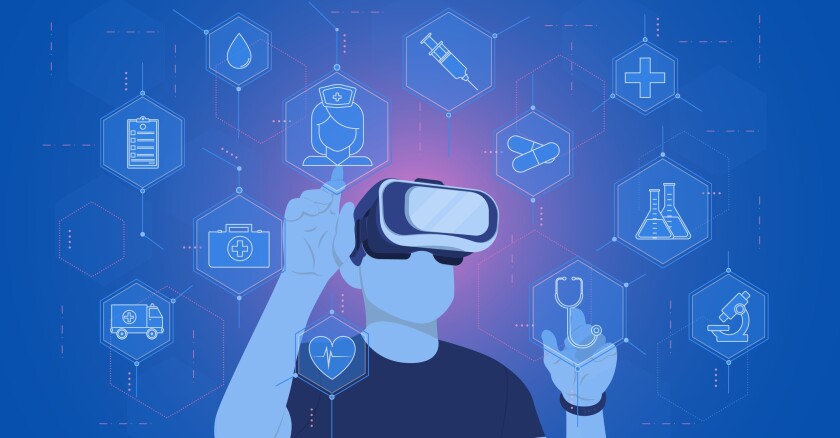Adjunct professor Russell Crispell has been using VR headsets as a way to teach first aid in real-world environments without having to go outside for the past few years.
A retired University of Buffalo professor, Crispell currently teaches three different CPR classes at NCCC, at UB and at a nonprofit organization called Earth Spirit, with an additional wilderness first aid course at SUNY's College of Environmental Science and Forestry this June. A teacher for more than 40 years, Crispell has been teaching wilderness first aid for the last 20 years and toyed with using virtual reality for eight years along with colleague Bud Termin. As the technology improved, it became easier for Crispell to bring his idea to fruition.
"I'm always interested in finding ways to improve the delivery system of information we provide as an educator," Crispell said, with his curriculum, despite requiring hands-on training, would list a scenario for students to learn such a guy getting into a car accident and is not breathing. "I felt a virtual-reality scenario makes learning much for real for someone to then make the assessment. That's why I think it's a very unique opportunity."
To fund this, Crispell received an instructional resources grant from the college. These grants, as described by Vice-President of Academic Affairs Lydia Ulatowski, are given out by the college to faculty for the development of instructional resources beyond the scope of the classroom, which would have a direct impact in the classroom.
The funds come from the college's budget, with an allocation of between $10,000 to $15,000. The grants are between $250 and $2,500 with an average amount of $1,000. The grant projects are developed over the summer so they can be implemented in classroom during the school year.
Most of the funding Crispell received went towards equipment to make this possible, from Oculus headsets to cheap ones from Walmart and a 360-degree camera. Geofences are used to control where a person with a VR headset goes in a scene.
The videos Crispell uses to teach his students are on his YouTube channel, ones he created with the capability to look around 360 degrees. Two that he showed the NCCC Board of Trustees during their recent monthly meeting showed an unconscious in the middle of the woods and someone with a fractured leg. Through situations like these, students have the opportunity to immerse themselves so they are forced to be aware of their surroundings in these potential scenarios. They can be done at home too.
About 95 percent of students Crispell teaches in his college courses are of typical college age and the majority of those taught through Earth Spirit are adult learners. Those adult learners have to get over a stigma of using a VR headset, but once they do, they are on board. His students usually get that wow experience when they first use the headset and look around the first forest scene and see someone else besides the man they are helping in the scene.
"It opened their eyes to this new technology," Crispell said.
With a huge growth in local demand for CPR training after Buffalo Bills player Damar Hamlin collapsed during a regular season game, Crispell sees this as a huge market opportunity for the community college.
"It's delivering a service to folks, whether they are online, wanting the hybrid setup, or just for their own information," Crispell said.
Crispell is looking to get more grant funding to shoot more videos for possible scenarios, including on a trip to Alaska, to build a library of 20 to 25 videos for the fall semester free of charge. He was also asked to do a presentation for his VR first aid for the Niagara Falls Air Reserve Station thanks to an Air Force medic he knows, who said military training is moving toward simulations.
©2023 the Niagara Gazette (Niagara Falls, N.Y.). Distributed by Tribune Content Agency, LLC.















